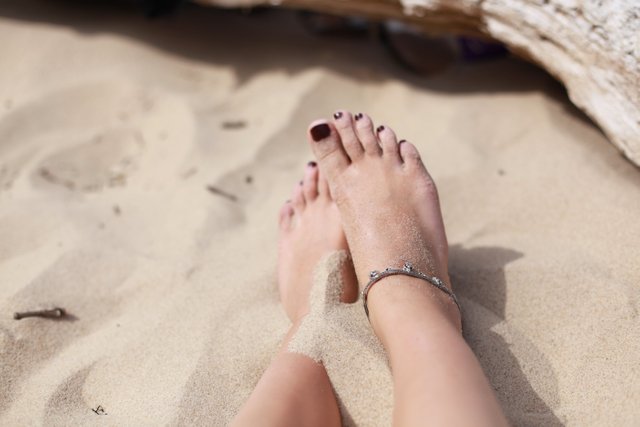SEC-S13/W3 | "Bare Feet 🐾"
Do you like walking barefoot?
Walking barefoot is a common practice in many cultures around the world. Some people enjoy the feeling of the earth beneath their feet, while others find it uncomfortable or even painful. Regardless of personal preference, it is important to consider the health of our feet and the potential risks associated with going barefoot.
How important is taking care of your feet?
Our feet are essential for mobility and balance, and they are subjected to a lot of wear and tear throughout our lives. Taking care of our feet is crucial for maintaining overall health and well-being. This includes keeping them clean and dry, wearing comfortable and supportive shoes, and seeking medical attention for any foot-related issues.
Neglecting foot care can lead to a variety of problems, such as fungal infections, blisters, calluses, and even more serious conditions like plantar fasciitis or diabetic foot ulcers. By taking care of our feet, we can prevent these issues and ensure that we are able to stay active and mobile for years to come.
What do you think of the saying “Don't walk barefoot, parasites can get in”?
The idea that walking barefoot can lead to parasitic infections is not entirely unfounded. Parasites like hookworms and roundworms can enter the body through the soles of the feet, particularly in areas with poor sanitation or where people walk barefoot frequently. However, the risk of infection can be minimized by avoiding areas with contaminated soil, wearing shoes in high-risk environments, and practicing good hygiene.
It is also worth noting that the risk of parasitic infection from walking barefoot is relatively low in many parts of the world. In fact, some studies have suggested that walking barefoot can actually have health benefits, such as improving balance and reducing foot pain.
What do you think of a world without shoes?
While the idea of a world without shoes may seem idyllic to some, it is important to consider the potential drawbacks. Going barefoot can expose our feet to a variety of hazards, such as sharp objects, hot surfaces, and cold temperatures. It can also increase the risk of foot injuries and infections.
In addition, shoes provide important protection and support for our feet, particularly when engaging in physical activity. They can help prevent injuries like sprains and fractures, and provide cushioning and stability for the feet and ankles.
That being said, there are certainly situations where going barefoot is appropriate and even beneficial. For example, walking on soft, natural surfaces like sand or grass can be a great way to strengthen the feet and improve balance. Ultimately, the decision to wear shoes or go barefoot should be based on personal preference and the specific circumstances.
